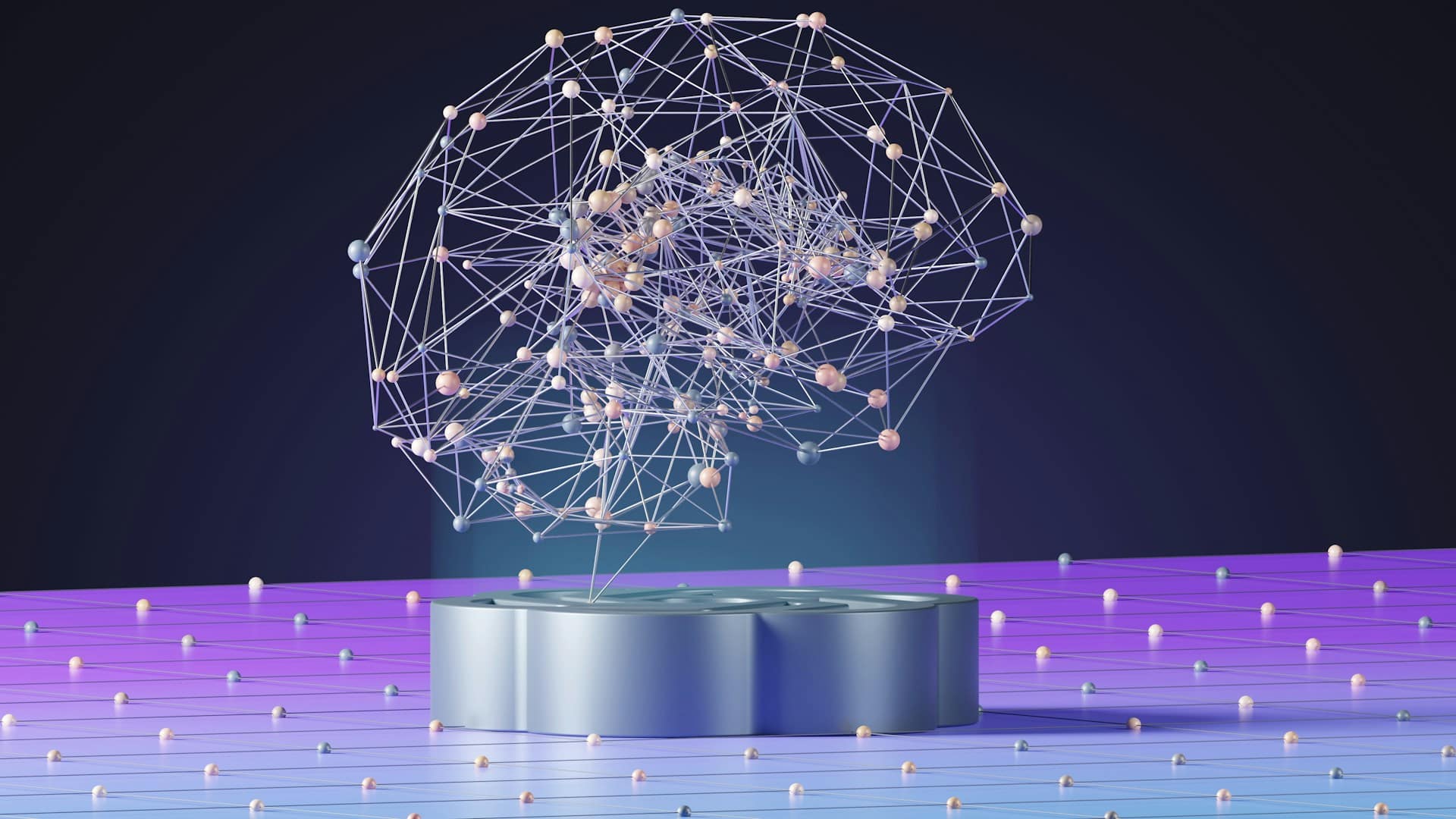The convergence of artificial intelligence (AI) and blockchain technology can potentially transform the digital ecosystem as we currently know it. While both technologies have had a significant impact on their own, the intersection of AI and blockchain opens up new possibilities in areas like supply chain, logistics, cybersecurity, and more.
Read on to explore the benefits of integrating AI in blockchain technology and discover exciting use cases for AI in blockchain.
How AI And Blockchain Can Complement Each Other
According to a study by Spherical Insights, the combination of AI and blockchain technology is predicted to grow into a billion-dollar industry within the next ten years.
AI excels at processing large amounts of data, identifying patterns, making predictions, and enhancing decision-making by using neural networks that mimic the cognitive processes of the human mind.
Blockchain is a decentralized, immutable digital ledger protocol that is a tamper-proof store of records and enables permissionless and transparent digital transactions.
Individually, each technology plays an important role in the current digital landscape.
For instance, machine learning and natural language processing, both critical components of AI, are transforming how businesses function in areas like automation, customer experience, predictive analysis, etc. Blockchain’s immutability has enhanced secure data storage and transparency in digital transactions.
AI’s convergence with blockchain helps in tackling issues like data security, efficiency, and transparency.
AI models can use blockchain to secure and ensure the integrity of the underlying data and streamline workflows by integrating smart contracts into their function. Blockchain can also utilize AI to structure large data sets for smart contracts and speed up the delivery of tasks.
Benefits of AI in Blockchain
The combination of AI’s strong analytical capabilities and the decentralized properties of blockchain can have several benefits.
- Improved security of decentralized protocols: Blockchain is known for its security properties because of its decentralized and immutable settlement layer. AI can augment these security measures by near-instantly detecting any potential threats in a blockchain protocol. Smart contracts can leverage AI to identify vulnerabilities and enhance encryption methods.
- Ensure integrity of data resources: For decentralized protocols to work effectively, they need to pull data from trusted sources and secure the information. AI can be used to verify and determine the accuracy and reliability of data. Moreover, AI can be used to automatically structure the data in a way that is compatible with smart contracts.
- Enhance scalability of blockchain networks: The blockchain trilemma refers to the problem of achieving scalability in blockchains without compromising their security or decentralization. AI can help reduce this problem by predicting and managing network loads, enabling adjustments that optimize the network’s performance. AI’s predictive capabilities can forecast future demands on the network and thus assist in prioritizing resource allocation.
Challenges of AI in Blockchain
While AI in blockchain offers several benefits, some problems hinder its adoption.
- Inadequate data privacy frameworks and standards: Effective regulatory frameworks are needed to ensure AI integration into blockchain meets all ethical and legal standards. Moreover, developing standards for AI-backed decentralized applications is necessary to ensure user privacy and promote user trust.
- Ethical concerns around AI bias: AI models are susceptible to learning human biases from training data and can amplify these biases. Encoding these biases into an immutable ledger may result in systematic flaws and raise serious ethical issues.
- Lack of clear mechanisms for AI interoperability: AI models have traditionally struggled to pull and read data from external sources. For AI systems to integrate into blockchain networks, standardized protocols and interfaces are needed to share data effectively.
Use Cases of AI in Blockchain
The amalgamation of AI and blockchain is impacting several industries. Below, we highlight five use cases that show the potential of integrating AI into blockchain.
Blockchain Security
Traditionally, blockchains have relied on cryptography to verify and secure transactions. However, AI has the potential to add an extra layer of security by monitoring transactions and network activities, detecting any anomalies in real-time, and initiating mitigation measures immediately. Certik, a New York-based company, is leveraging AI to audit and secure smart contracts and decentralized applications.
Smart Contract Optimization
AI solutions can make smart contracts more efficient by analyzing historical data and using predictive analytics to foresee any challenges to executing contract conditions. Natural language processing can allow smart contracts to decipher and process human legal contracts. Scifn, formerly known as Chainhaus, is a New York-based blockchain and AI advisory firm offering services in the building and maintenance of blockchain infrastructure.
Asset Tokenization
While blockchain can be used to tokenize real-world assets like stocks and art, AI can be deployed to analyze provenance data, asset conditions, and market trends to calculate the value of each token. Moreover, machine learning can analyze real-time data feeds and continuously update the asset’s tokenized value. Solulab, a California-based AI and blockchain solutions company, provides services to convert real-world assets into digital tokens.
Market Trends and Prediction
AI can identify patterns and correlations in crypto historical data to predict future price movements. Investors can use this information to bet against future market corrections or hedge their investments. Neureal is an example of a prediction engine that analyzes trends and leverages AI and blockchain to forecast everything from Google searches to stock markets.
Data Integrity
AI can verify off-chain data sources that feed into smart contracts to verify their accuracy before the data can be stored on-chain. For instance, AI-powered smart contracts can interpret complex legal terms and conditions, reduce legal ambiguities, and ensure compliance with regulatory frameworks. Blackbird.AI is a tool that uses AI to verify off-chain news content for companies in the communication and information space and uses blockchain to store the verified content.
Conclusion
The use of AI in blockchain provides a foundation for innovation at a time when industries depend on big data for decision-making. Businesses need to embrace the benefits of integrating AI in blockchain to enhance operational efficiency, data accuracy, and information security.



